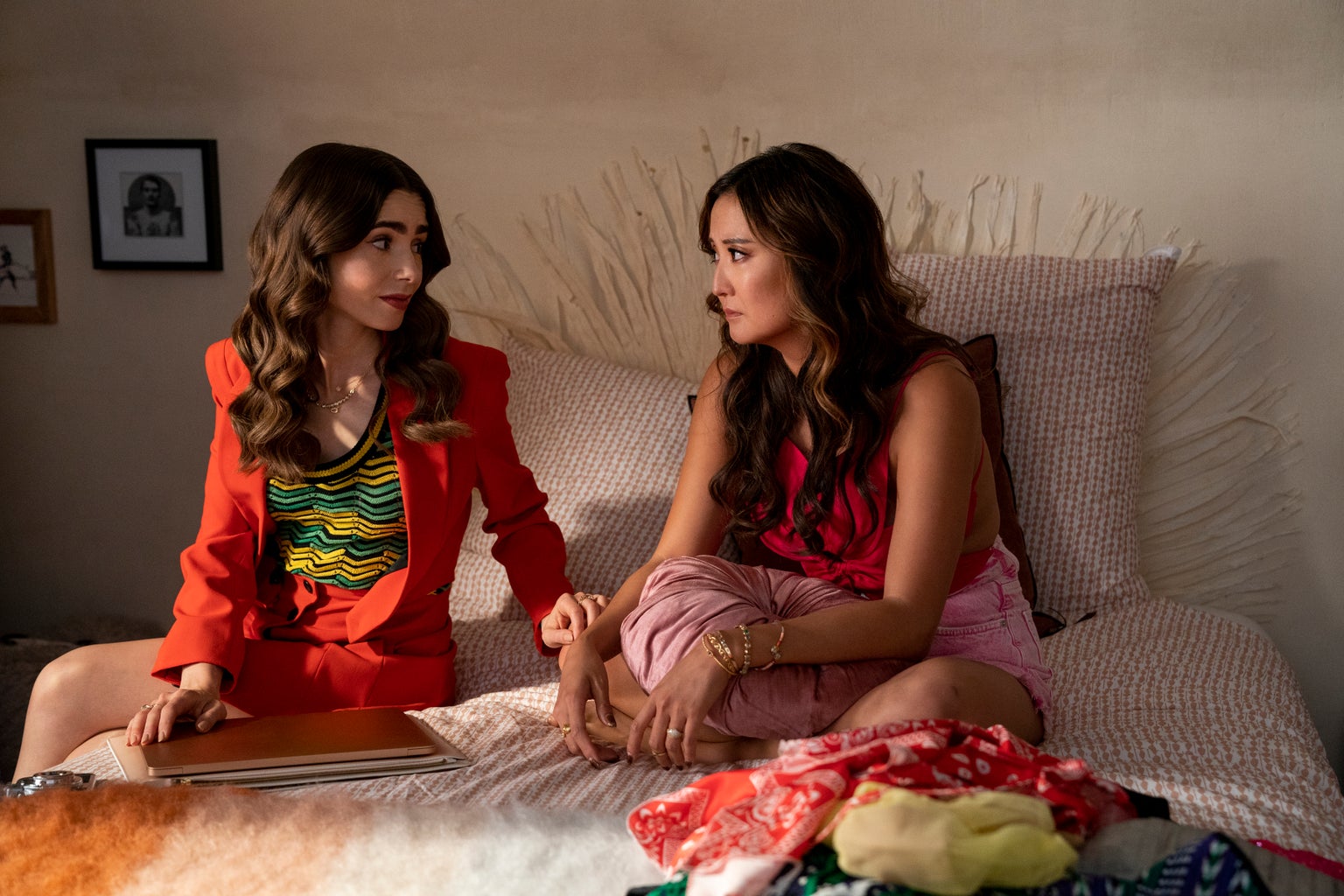Dolly Alderton’s “Everything I Know About Love” is no secret success in the literary world. It won the 2018 National Book Award for autobiography, has been adapted into a Peacock/ BBC short series, and if you’re a young woman entering adulthood, you have probably had this book recommended to you at least twenty times. If that is not enough to convince you of Alderton’s talent and you want a sample of her writing before spending the best $17 you will ever spend, she also has a weekly advice column for The Sunday Times Style Magazine called ‘Dear Dolly’. The column covers a multitude of topics from family matters, dating to workplace issues. No matter what stage of life you are in, Alderton has some sage advice for you.
The book follows Alderton from her middle school years to adulthood as she dives into everything she has learned in life. From boys to best friends to grappling with her sense of self, Alderton captivates audiences with her honest, comedic, and uniquely sincere voice.
When you peel back the layers of this book, you get a profound ode to girlhood and female friendships, and insight into the kind of love and understanding those who have experienced them can deeply relate to. Between stories of bad dates, attempts at adulthood in London in an all-girls apartment, breakups, reconciliations, and comedic emails and recipes, you come to know and love Alderton as not only a writer but as a very wise friend.
Before reading this novel, I was skeptical about all of the praise it was receiving. I wasn’t sure how this one book could define a period of my life, but I was completely wrong. After reading “Everything I Know About Love” for the first time last March, I have re-read it twice. I find myself coming back to Alderton’s words time and time again when I don’t know where else to turn. She is a beacon of light and wisdom for anyone who is navigating early adulthood when it feels like you have both everything and nothing figured out.
I think people enjoy Alderton’s story because she doesn’t attempt to glamorize her life or the experience of her twenties. She tells an honest story, and people are compelled to read it because of the earnest retelling of her greatest mistakes and successes. She tells the tale of female friendship so ardently that it will give you a deeper appreciation for the women in your life.
Reading Alderton’s novel inspired me to reflect honestly on everything I learned about love through my own experiences. Here, I’m providing my thoughts on some of the lessons Alderton preaches throughout the novel.
- “It may seem that life is difficult at times but it’s really as simple as breathing in and out… You were made so that someone could love you. Let them love you” (Alderton, 203)
-
It goes without saying that existing between the ages of 18 and 29 is perhaps the most uncertain period of life. Things feel heavy, and it can feel like the only thing you are consistent at is making mistakes. Hearing Alderton simplify life, even for a moment, as breathing in and out, was completely revolutionary for me. As someone who has felt the stresses that life brings at this age, this lesson brought a necessary perspective shift for me.
- “A reminder that no matter what we lose, no matter how uncertain and unpredictable life gets, some people really do walk next to you in life forever” (Alderton, 265)
-
Coming to college has tested the strength of some of my friendships with people I once considered closest to me. I quickly realized that when you move almost 800 miles from home, some of the casual friendships you have fade away. It is not possible to keep up with everyone and everything. You miss birthdays and breakups. phone numbers you think you will remember forever suddenly – and without much warning- slip your mind. You won’t always be the first person certain people call anymore when something goes wrong. However, I have found that for every three friendships I have lost, one friendship becomes more resilient and steadfast. You will lose some friendships, however, some people really will walk beside you through thick and thin for the rest of your life, and that is truly a special element of love.
- “However thin or fat you are is no indicator of the love you deserve or will receive” (alderton, 326)
-
Being a woman approaching the transition between my teens and my twenties, I found this realization to be immensely comforting. Since the age of 12, I can’t recall a time when I didn’t know exactly how much I weighed down to the pound. I think society has made it a malicious and twisted goal for women to be constantly and painfully aware of their weight and what they “should look like.” From girls losing weight (and their sense of self) to get boys to like them in movies, to the most popular celebrities promoting toxic diet culture and reinforcing unreasonable standards to young girls- sometimes it feels like you will never be loved if you don’t look a certain way. I found it refreshing that Alderton shares her personal experience with her relationship with her body instead of advocating for unrealistic diets. She promotes self-love and the acceptance of your body, which is a reassuring take for someone who is navigating a society where unrealistic beauty standards are rebranded as “self-improvement” in every corner of the media.
- “Let friends abandon you for a relationship once. The good ones will come back” (Alderton, 328)
-
In high school, I found myself abandoned many times by friends who were in relationships. I was always frustrated when plans to go out would be canceled due to a teenage boy’s odd insecurities about his girlfriend going out with her group of friends or what she was wearing that night.
Alderton comments on this experience saying, “When a woman my age falls in love with a man, her list of priorities go from:
1) Family
2) Friends
To this:
1) Family
2) Boyfriend
3) Boyfriends Family
4) Boyfriends Friends
5) Girlfriends of the Boyfriends Friends
6) Friends” (Alderton, 134)
It was always upsetting to lose another friend to this seemingly illogical behavior. Even worse, as another woman, you know this is a battle you will never win, because in the past you too have changed your priorities for a man. But on the bright side, at least in my case, as high school ended, so did these relationships. Since then, I have seen many of my closest friends return to a fuller presence in my life and I couldn’t be happier. While it can feel like an annoyance at the time, Alderton is right–the best ones will always return. In the meantime, even though it can be the closest thing to hearing nails on a chalkboard, listen to your friends talk about their boyfriends, and support your friends in any way you can. From my personal experience, you never know when someone you love could need help leaving a toxic situation or recognizing bad behaviors, and when they finally get the courage to leave, they may really need a friend like you.
Photo by Stéphanie Branchu/Netflix - “When you are looking for love and it seems like you might never find it, remember you probably have access to an abundance of it already, just not the romantic kind… You have so much to gain and learn from this kind of love. You can carry it with you forever. Keep it as close as you can” (Alderton, 358)
-
Love will always find you in the most random places. Many times the romantic love our society is somehow endlessly seeking is not the love we need at all. Alderton closes her book by exclaiming that the love we need is the love we find within ourselves and from those closest to us. I have learned in my own life that the way in which you take care of yourself, the standards you hold yourself to, and the respect and love you give yourself will define how other people will treat you. I find the very best kind of love in my life is the unwavering love I have felt in my long-term friendships.
- “Nearly everything I know about love I have learned in my long-term friendships with women” (Alderton, 314).
-
I would like to end with my favorite quote from the book. Alderton ends by answering how she became so wise about love and relationships.
The love the women in my life have taught me to have for myself and the support I have been shown has shaped me into the woman I am today. I am forever grateful to every woman in my life who has ever made that possible. This love is in the stack of birthday cards from my mom I have kept in a box beneath my bed since I was twelve, in the mixtape my best friend from high school gave me our junior year, and in the sincere and wise advice that only my sisters could offer. Love is all around us constantly, and life is about finding it, appreciating it, and holding it close. Even when you have to let it go, the right love will always come back. Alderton teaches us that you don’t need to worry about boyfriends or girlfriends or any romantic relationships because your closest friends will teach you everything you need to know about love.



